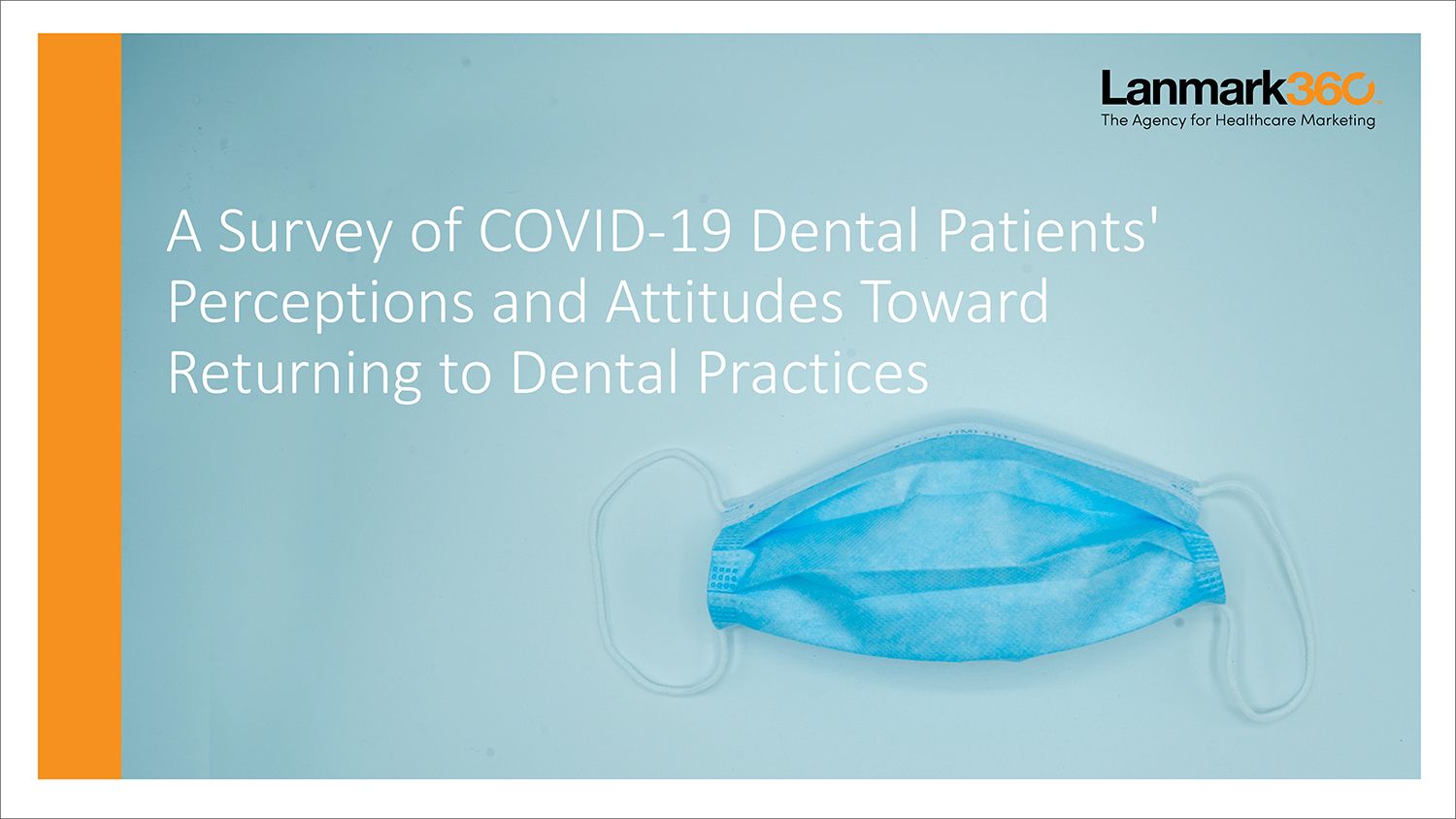Lanmark360 survey shows most consumers ready to return for dental care
Lanmark360 has published a survey that offers key consumer insights regarding their desire to see their dentists for a checkup as COVID-19 restrictions are lifted.

Lanmark360, a full-service healthcare agency, has published a survey that offers key consumer insights regarding their desire to see their dentists for a checkup as COVID-19 restrictions are lifted. The nationwide survey consisted of 275 consumers who identified drivers and barriers that impact their decisions to resume dental care visits.
The survey results indicated that consumer sentiment, perceptions, and attitudes are quite positive with respect to their willingness to rapidly return to dental practices. When asked, “Is being able to return to the dentist more or less important than other things?”, respondents ranked seeing their dentist as more important than getting their hair cut, pet grooming, and going to restaurants.
“We found that over half of the respondents fell behind on their dental care due to canceled appointments during the COVID-19 pandemic,” Howard Klein, Lanmark360 President, said. “However, 10% intend to see their dentists immediately once their dentist’s office has reopened, and a full 50% intend to return to their dentist for a routine cleaning within three months.”
The majority of respondents surveyed also indicated a preference for single-visit dentistry, and more than 50% believe practice safety protocols are extremely important.
Many other important insights are highlighted in the full survey results report, including crucial information that dentists can leverage to help ensure patients feel safe upon their return to the dental office, as well as how patients prefer to be contacted by their dentist’s office once they reopen and what information they expect to receive.
To view and download the full report, click here.
Study Shows Dental Opioid Prescribing Went Up During COVID-19 Pandemic
November 6th 2023A new study demonstrates that dental opioid prescribing increased during the peak of the COVID-19 pandemic, reinforcing the importance of non-opioid pain management solutions even during global health emergencies.